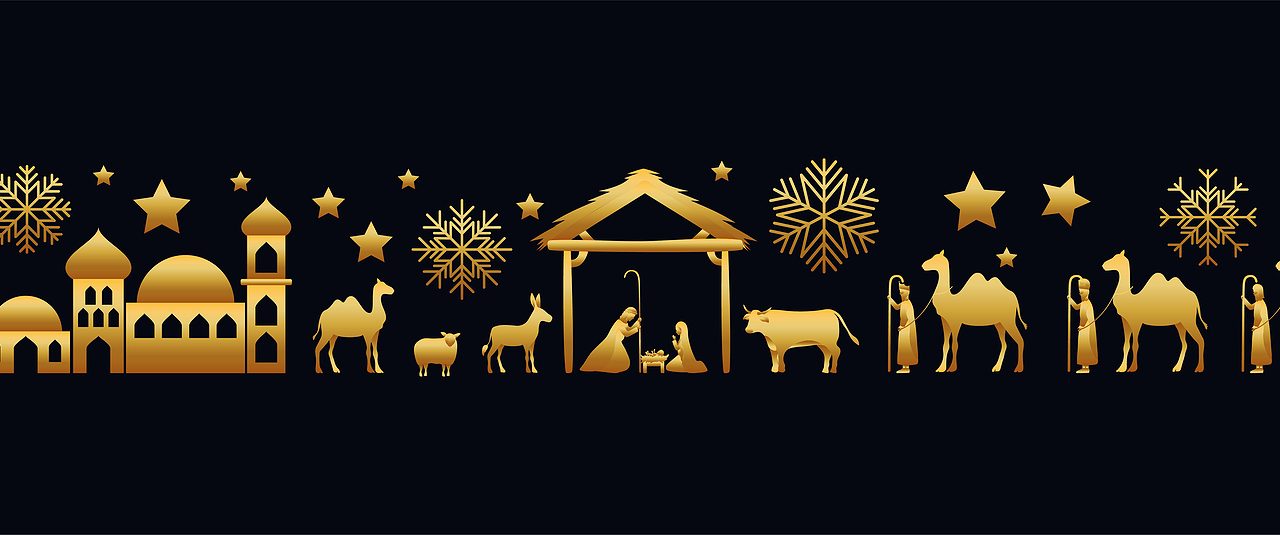I love Christmas! Time with family, decorating the house, food, music, traditions, gift giving—did I mention food? One of the things about Christmas that I particularly enjoy is reflecting on the theological significance connected with the birth of Jesus—the virgin birth, fulfillment of prophecy and especially the “paradoxes” His birth presents as we think about its significance for us.
In general, paradoxes deal with something that appears to be contradictory and calls for deeper thought and investigation. Some examples of a paradox are: “Nobody goes to that restaurant; it’s too crowded,” and “If I know one thing, it’s that I know nothing.” James Boice, in his book, “The Christ of Christmas,” quotes Donald Barnhouse who explored a number of “paradoxes” of Christ’s birth and the importance the incarnation has for followers of Christ.
- Jesus underwent a human birth, so that we might have a spiritual birth. Because of the incarnation of Jesus, we can have new birth in Christ. John 1:12, “But to all who did receive Him, who believed in His name, He gave the right to become children of God.”
- Jesus took His place in a manger, so that we might have heavenly homes. Luke 2:7 states that Mary laid the newborn Jesus “in a manger, because there was no room in the inn.” Consider the paradox of Jesus, who created the vast expanse of the universe, having no proper place to be born. In contrast to where He was born, Jesus gives us an eternal home in glory. John 14:2, “In my Father’s house are many rooms. If it were not so, would I have told you that I go to prepare a place for you?”
- Jesus made himself subject to others so that we, through the power of the Holy Spirit at work within us, might be made free. Luke 2:51 states, “And He went down with them and came to Nazareth and was submissive to them.” By contrast, Gal. 5:1 says, “For freedom Christ has set us free; stand firm therefore, and do not submit again to a yoke of slavery.”
- Jesus laid His glory aside that we might receive glory. Phil. 2:6-7 states that Jesus, “though he was in the form of God, did not count equality with God a thing to be grasped, but emptied himself, by taking the form of a servant, being born in the likeness of men.” Contrast that to 1 Peter 5:4, “And when the chief Shepherd appears, you will receive the unfading crown of glory.”
- At His birth, Jesus was pursued by an evil leader. In His death, Jesus defeated the ultimate evil leader—Satan. Jesus was pursued by the evil ruler Herod only to one day destroy the far more dangerous and evil ruler who pursues us. Heb. 2:14-15, “Since therefore the children share in flesh and blood, He himself likewise partook of the same things, that through death He might destroy the one who has the power of death, that is, the devil, and deliver all those who through fear of death were subject to lifelong slavery.”
Boice writes, “Put all of these texts together and we see a great pattern. We see that Jesus endured a human birth to give us a new spiritual birth. He occupied a stable that we might occupy a mansion. He had an earthly mother so that we might have a heavenly Father. He became subject that we might be free. He left His glory to give us glory. He was poor that we might be rich. He was hunted by Herod that we might be delivered from the grasp of Satan. This is the paradox of Christmas. It is the reversal of roles at God’s cost for our benefit.”
How very thankful we should be for the many things we receive through the incarnation of Jesus. I pray you and yours have a very Merry Christmas!





